US election: Pete Buttigieg beats Democrats’ big blue
The gay millennial candidate may be the Democrats’ next big hope, but the biggest hurdle could be his own party.
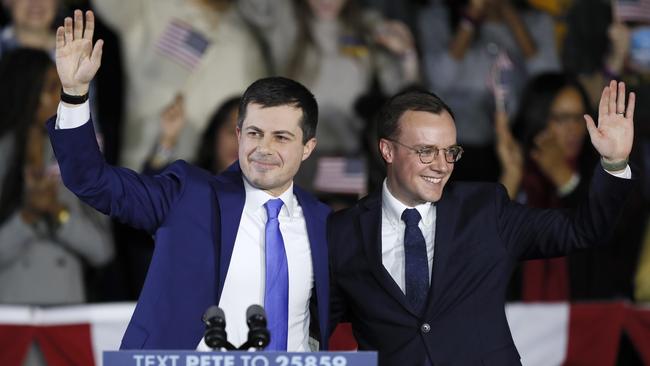
Partial results show the gay former mayor of a mid-size midwestern US city is ahead in the first vote in the presidential nominating contest in Iowa, seizing the momentum in the race to see who faces Republican President Donald Trump in November.
The Democrats are the object of national ridicule after the system of vote counting collapsed, leaving the candidates and the country in the dark. One of the most important political moments of the election year became a crushing anti-climax.
It was a nightmare end to a week that started horribly when the Democrats lost every key vote in Trump’s impeachment trial, ensuring the Senate will swiftly acquit the President on Thursday (AEDT), ending a saga that produced no obvious political benefit for the progressive party or the US.
With 71 per cent of the counting in Iowa released on Wednesday, the 38-year-old Buttigieg was on 26.8 per cent, ahead of senator Bernie Sanders on 25.2 per cent. Former US vice-president Joe Biden’s campaign is struggling after he finished fourth on 15.4 per cent, behind senator Elizabeth Warren on 18.4 per cent.
Sanders, Warren and Biden are all aged over 70, with long political careers and global reputations.
Calm military veteran
In an era of toxic division and high-pitched political noise, Buttigieg is a technocrat who rarely raises his voice. He deploys calm and reason over bombast, offering a centre-left platform rather than political revolution.
Buttigieg uses his military experience — he paused his duties in South Bend Indiana, population 100,000, to serve in Afghanistan as a US Navy intelligence officer — to convey a composure that belies his age.
“Every time that my party has earned the White House in the last 50 years, it has been with a candidate who was new to national politics, focused on the future, not caught up in the ways of Washington, and opening the door to a new generation of leadership,” he told a rally in Waterloo, Iowa. “That’s how we win.”
A key Buttigieg argument over the past year has been electability. He stresses his progressive streak but believes his more moderate positions on healthcare and taxes could win over voters in the centre.
After the partial results were released in Iowa, an emotional Buttigieg said: “This validates the idea that we can have a message — the same message — connect in urban, rural and suburban communities, that we can reach out to Democrats, independents and even future former Republicans.’’
In recent months Buttigieg, a former Rhodes scholar who went to Harvard and speaks several languages, often focused more on his Christian faith than his same-sex marriage. Chasten Buttigieg is a 30-year-old teacher who would become the first “first gentleman” if his husband were to win the White House.
A video went viral of an Iowa woman who supported Buttigieg in the caucus asking to change her vote after learning the candidate was gay. She cited her religious beliefs for doing so.
“Are you saying that he has a same-sex partner? Are you kidding?” the woman, wearing a “Pete 2020” sticker, asks a caucus organiser in rural Iowa. “Well, then, I don’t want anybody like that in the White House. So can I have my card back?”
The Buttigieg precinct captain in Cresco, Iowa, seeks to reassure the unidentified woman that a candidate’s sexuality is not a concern. “I would like you to just dig deep inside and think, should it matter if it’s a woman or if it’s a man or if they’re heterosexual or homosexual, if you believe in what they say?” says the caucus official, identified online as Nikki Heever.
The woman replies: “Well he’d better read the Bible.”
Heever tells her that Buttigieg does, and that she respects her viewpoint. “I just ask you to look inside your heart, because you sound like a Christian woman to me and I’m a Christian woman, and my God wants me to love everybody,” Heever says.
In his speech on Wednesday, Buttigieg made a rare, though implicit, reference to his sexuality.
His strong performance was a boost “for a kid somewhere in a community wondering if he belongs, or she belongs or they belong in their own family,” he said with a catch in his voice.
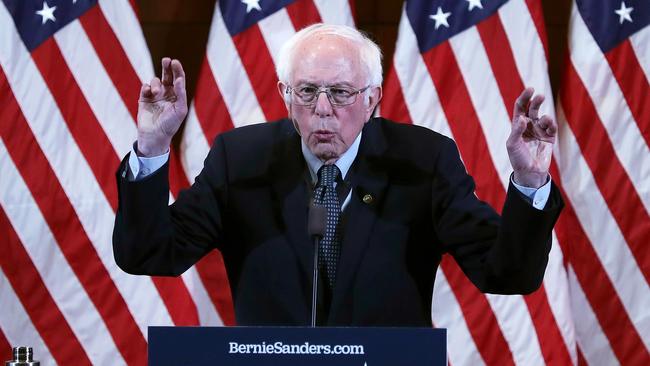
Clashes with Pence
As mayor, Buttigieg worked — and sometimes clashed — with Indiana’s then governor Mike Pence, a religious conservative who is now US Vice-President.
For many Americans, Buttigieg was an unknown quantity until a televised town hall meeting last March when he slammed Pence as a “cheerleader” for Trump’s “porn-star presidency”.
As his campaign has grown, Buttigieg has positioned himself as a post-Trump unifier. He supports healthcare expansion to all Americans but, unlike his more left-wing colleagues, he proposes giving people a choice between a public option or private insurance.
Buttigieg believes in strong unions and has suggested expanding the US Supreme Court from the current nine judges to 15. But he has struggled to attract support among black voters. Iowa is a very white state and Buttigieg invested enormous time and effort campaigning in it. The real test for him will come in states such as South Carolina, with far higher numbers of African-American voters.
For Biden, the Iowa result is a blow. He was not expected to win in the state because it has so few black and Latino voters who are strong supporters of the former vice-president. He is expected to win in South Carolina — with its large African-American population — next month.
But if Biden performs poorly in the New Hampshire primary next week, his campaign may run out of steam before he even reaches South Carolina.
Buttigieg, Sanders, Warren and former New York mayor Michael Bloomberg — who is not contesting the four early voting states — all appear to be better placed to win the nomination than Biden.
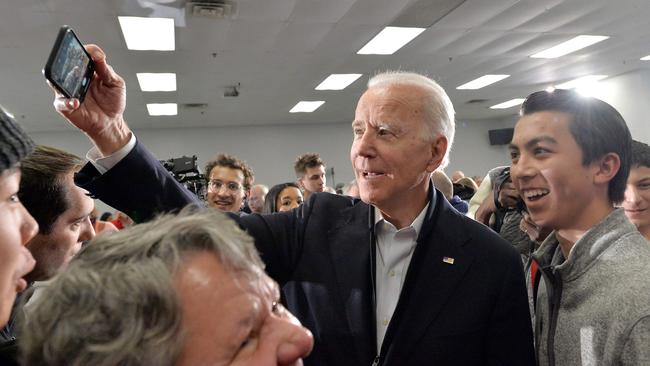
Caucus debacle
But the Iowa fiasco has deprived them all of the chance to enhance their profiles and campaign funds.
The winner should have given a primetime victory speech to the country as they became the early frontrunner for the party’s nomination.
Instead, it was a major victory for Republicans and Trump, who stood in front of the chastened Democrats, his impeachment accusers, in the House of Representatives on Wednesday and gave his State of the Union address.
The annual address traditionally is the most watched political speech of the year and Trump didn’t waste the opportunity, listing his achievements on the economy, jobs, trade and immigration, and portraying himself as an activist president who has kept faith with his voters.
Trump used the speech, in effect, to kick off his own re-election campaign, in stark contrast to the aborted take-off for the Democrats. He sucked up all the oxygen and the positive publicity that Democrats had been hoping for in Iowa 24 hours earlier.
Victory in Iowa is not important statistically: the state makes up only a fraction of the total Democratic delegates around the country. But the Iowa caucus often sets the tone of the campaign and provides early momentum for candidates. For the small midwestern state, which cherishes its high-profile role as the first in the nation to hold presidential primary contests every four years, this week was a catastrophe. The sparsely populated state is older and whiter than the rest of the country and increasingly is unrepresentative of the diversity of Democrats. Even before this week’s fiasco there were calls for the state to be stripped of its first-in-the-nation voting position but now those calls have grown.
The voting process in Iowa — even when it works — is byzantine. Voters are shuffled into the corners of school gymnasiums next to the sign of their preferred candidate. They are then counted, but if a candidate doesn’t get 15 per cent of the vote in that precinct, that candidate’s supporters can vote for someone else.
Attempts to inject the modern world into this process collapsed. An app that was supposed to make the tallying of votes faster and smoother malfunctioned, and in many precincts it could not even be loaded. That forced precinct officials to try to phone their results in to Democratic Party headquarters but the flood of calls overwhelmed officials.
For hours there was official silence about the problem, leaving the candidates and their teams, thousands of journalists and the entire country wondering who had won.
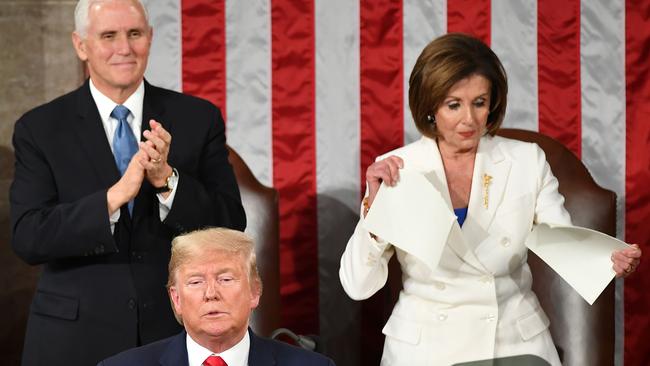
Trump’s glee
Faced with a vacuum of information, the Democratic candidates soon realised they could all make “victory” speeches even though they might have been comprehensively beaten.
Minnesota senator Amy Klobuchar was on stage before anyone else and getting arguably her biggest audience of the campaign as she cheekily declared: “We are punching above our weight … We are here and we are strong … we have beaten the odds every step of the way.’’
The partial result shows she won only 12.6 per cent of the vote.
Biden and Warren then made speeches at the same time, forcing networks to choose between them, while afterwards Buttigieg, buoyed by his team’s unofficial assessment of the returns, stood up and all but declared he had won.
Then, in the dead of night, most of the Democratic candidates hopped on planes to the next primary contest, in New Hampshire, without knowing how they had fared in Iowa.
“The Democrat Caucus is an unmitigated disaster,” Trump tweeted. “Nothing works, just like they ran the Country … The only person that can claim a very big victory in Iowa last night is ‘Trump’.’’
Trump campaign manager Brad Parscale also hit Twitter, saying: “Democrat party meltdown. “They can’t even run a caucus and they want to run a government. No thank you.”
After the spectacular own goal in Iowa, the Democrats will need to present a more professional image next week. Party operatives will be desperate hoping a clear frontrunner emerges soon — and that the other contenders unite behind the nominee for the White House race against Trump
Additional reporting: Agencies
Cameron Stewart is also US contributor for Sky News Australia.


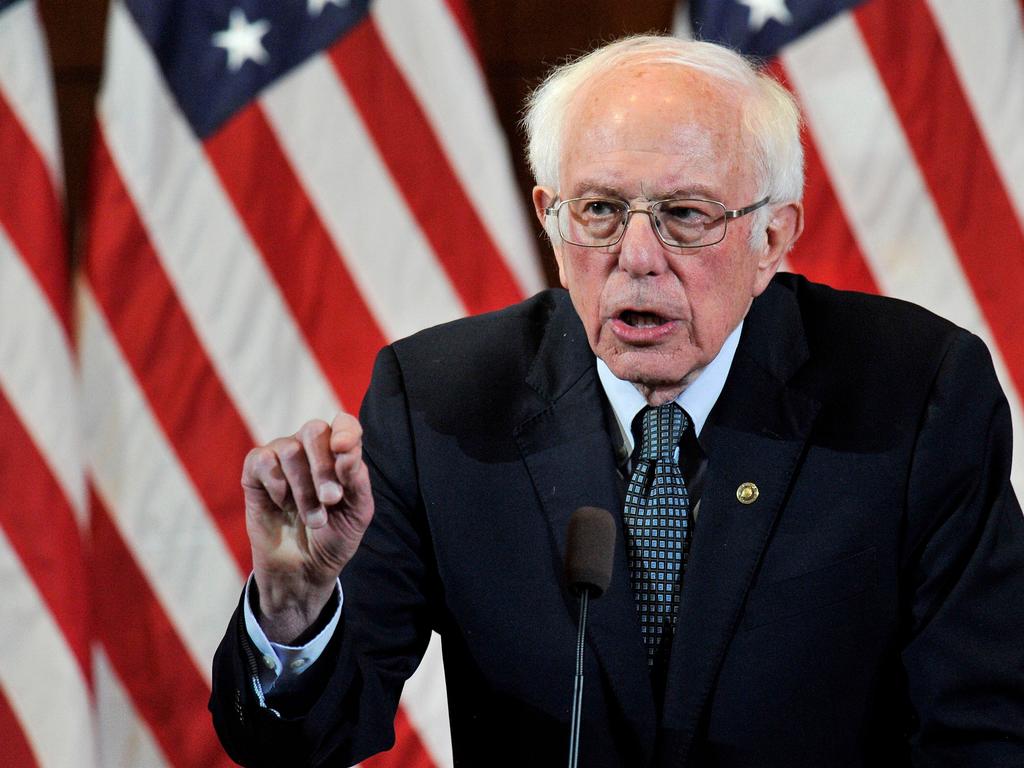
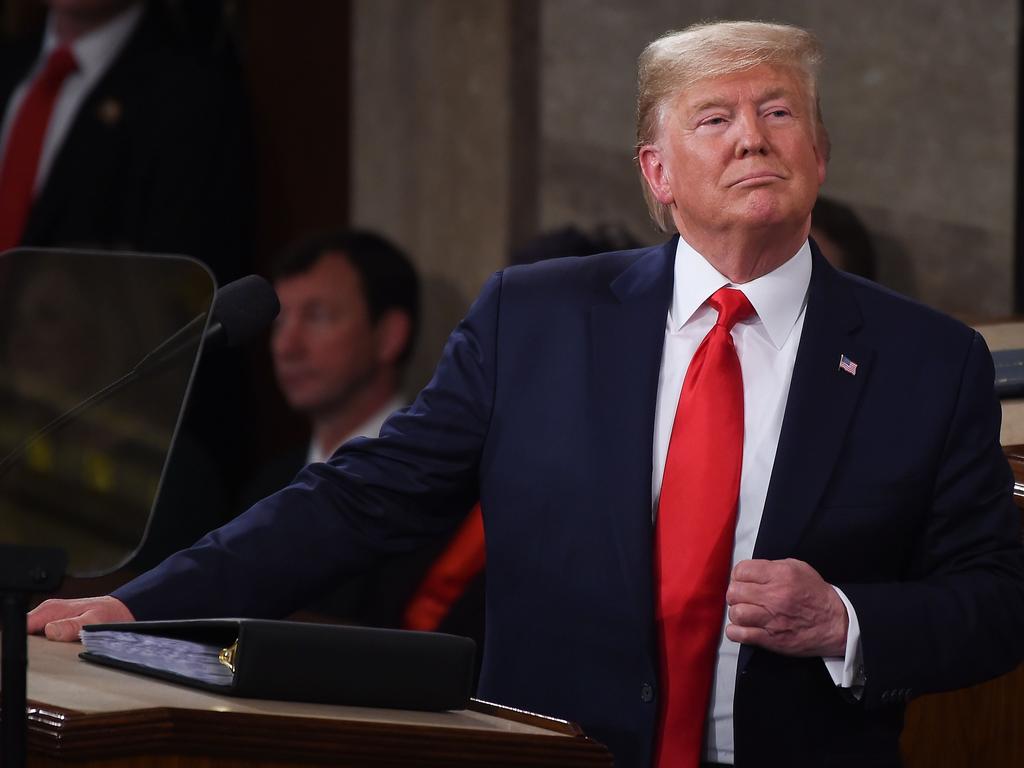

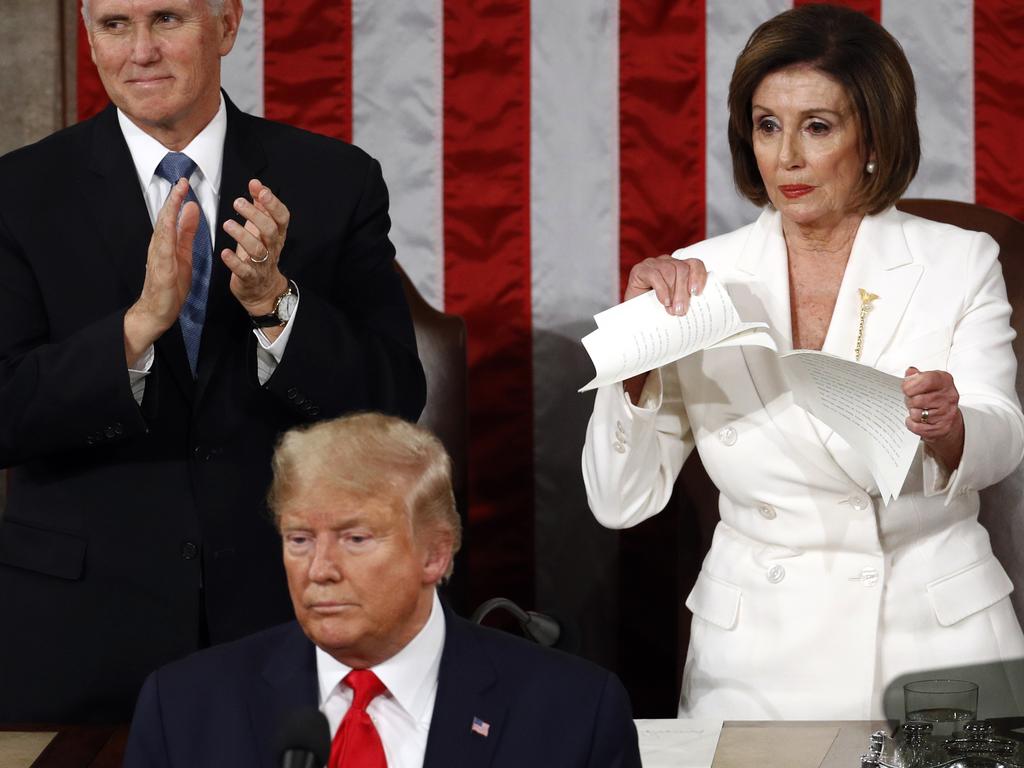
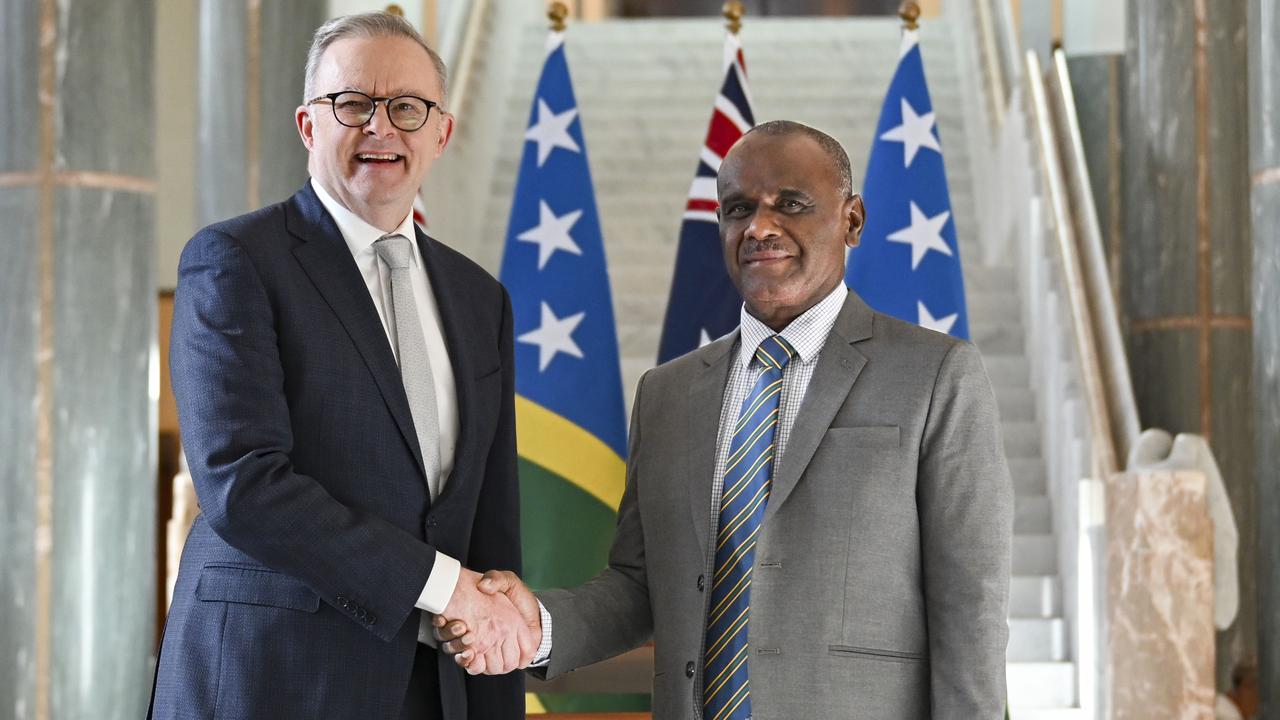
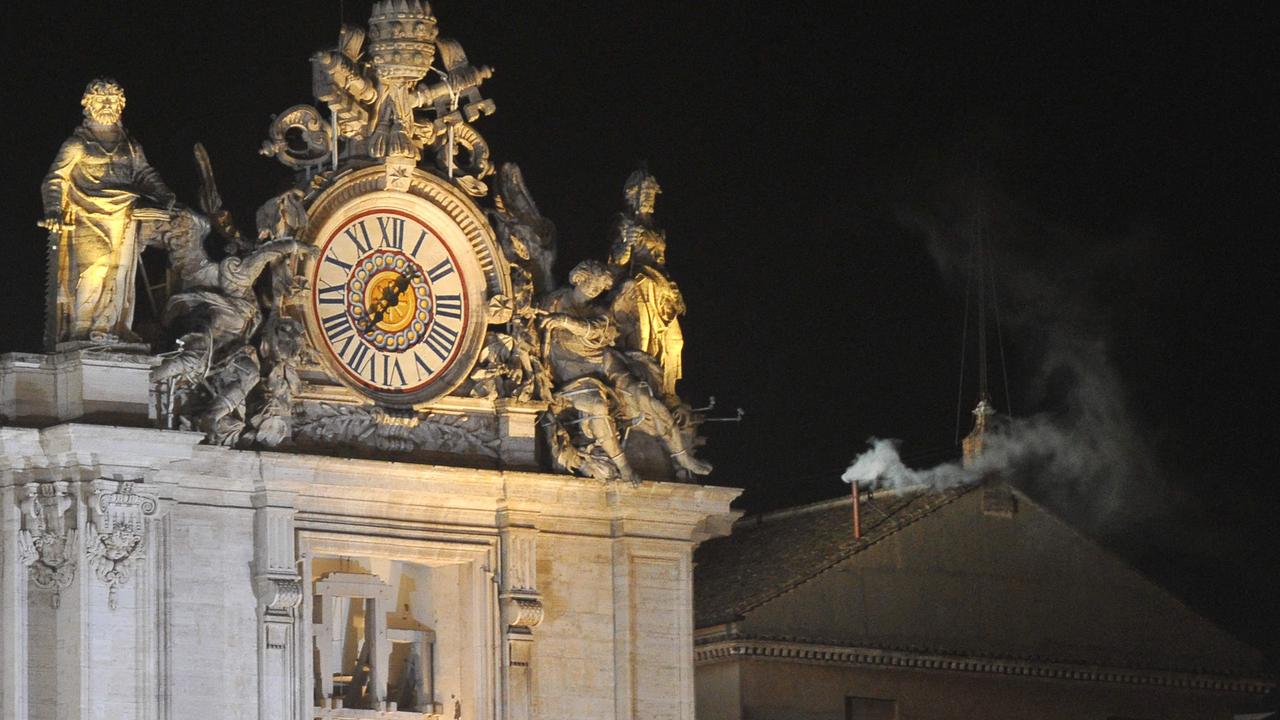
Millennial Pete Buttigieg has emerged from the carnage of a disastrous week for his party with a stunning lead over his much older and more seasoned rivals in the race to be the Democratic contender for US president.